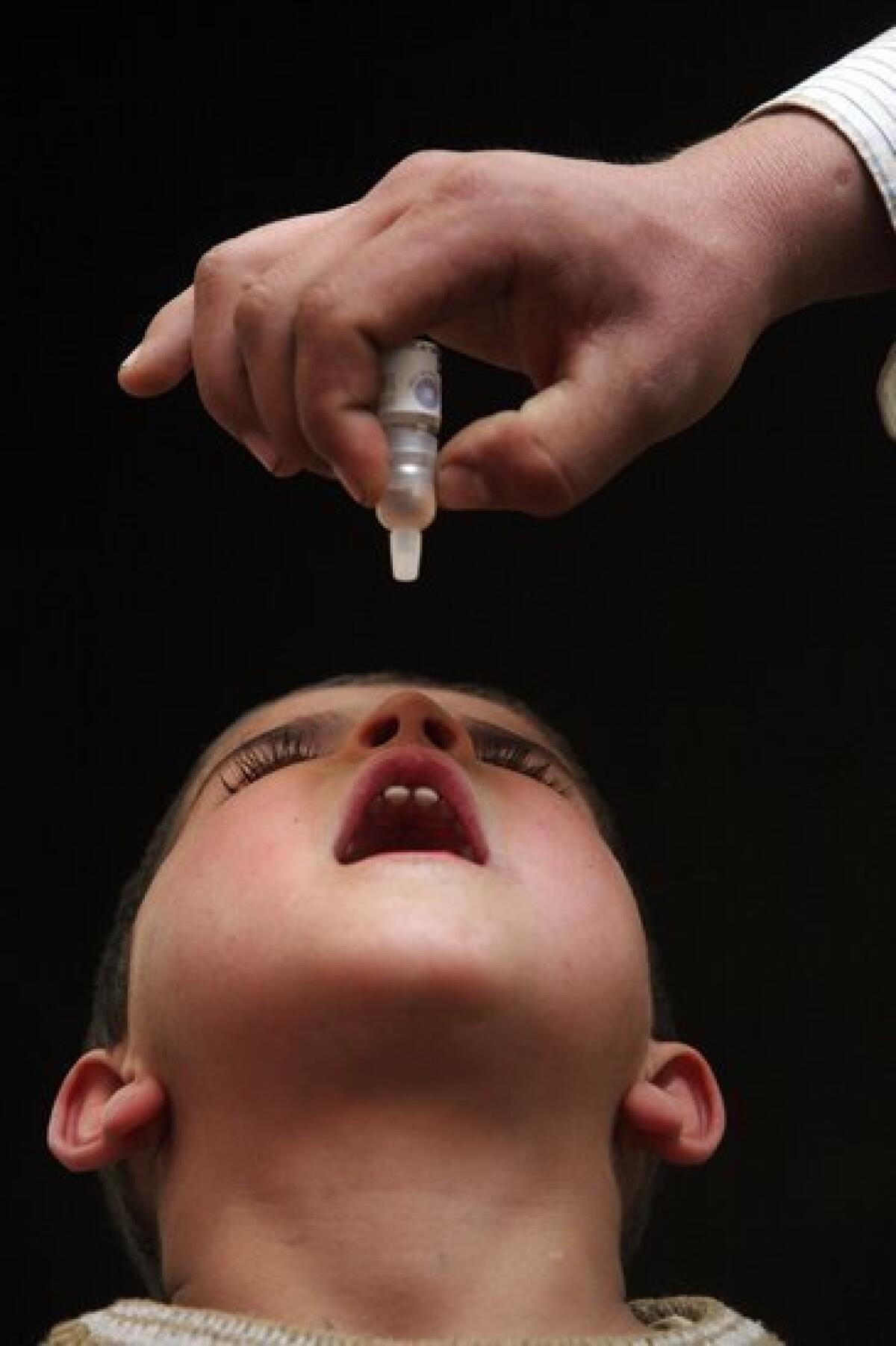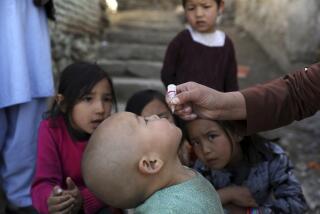Polio receding worldwide, but challenges remain

- Share via
The year 2012 has seen a historically low number of polio cases worldwide, reinforcing a belief among experts that we are inching closer to eradicating the disease, according to a series of presentations Tuesday at the annual meeting of the American Society of Tropical Medicine and Hygiene.
The number of polio cases around the world that have been reported this year as of October dropped to 177, down from 502 cases as of October 2011. And for the first time ever, no new cases were reported in previously unaffected countries, meaning the geographic spread of polio has slowed.
But the news is not all good. Polio remains a serious problem in Afghanistan, Nigeria, and Pakistan, where researchers describe the disease as endemic.
Much of the discussion Tuesday revolved around Pakistan, where progress has been one step forward, two steps back. Epidemiologist Dr. Steven Wassilak of the U.S. Centers for Disease Control and Prevention announced that it appears one of the two strains of polio present in Pakistan has been all but eliminated.
But Dr. Anita Zaidi of Pakistan’s Aga Khan University presented data showing that a major contributor to Pakistan’s continued polio problem is a refusal on the part of parents to vaccinate their children. In a study published by the World Health Organization, Zaidi has estimated that 74% of immunization failures are due to a parent’s outright refusal to vaccinate, a problem due largely to false rumors that the treatments cause sterility or carry HIV. Sometimes, Zaidi said, vaccination workers are intimidated or face outright violence, making it difficult to do their jobs. According to another presentation, similar refusal issues exist in Nigeria, where cases are actually on the rise.
Wassilak argues that the eradication of polio from India can serve as an example for these countries. India used to face similar issues, he said in a statement, but working “with community leaders and greater political commitment at all levels” led to dramatic increases in vaccination rates. Wassilak is hopeful similar changes will occur in time in Nigeria and Pakistan.
Return to the Booster Shots blog.






